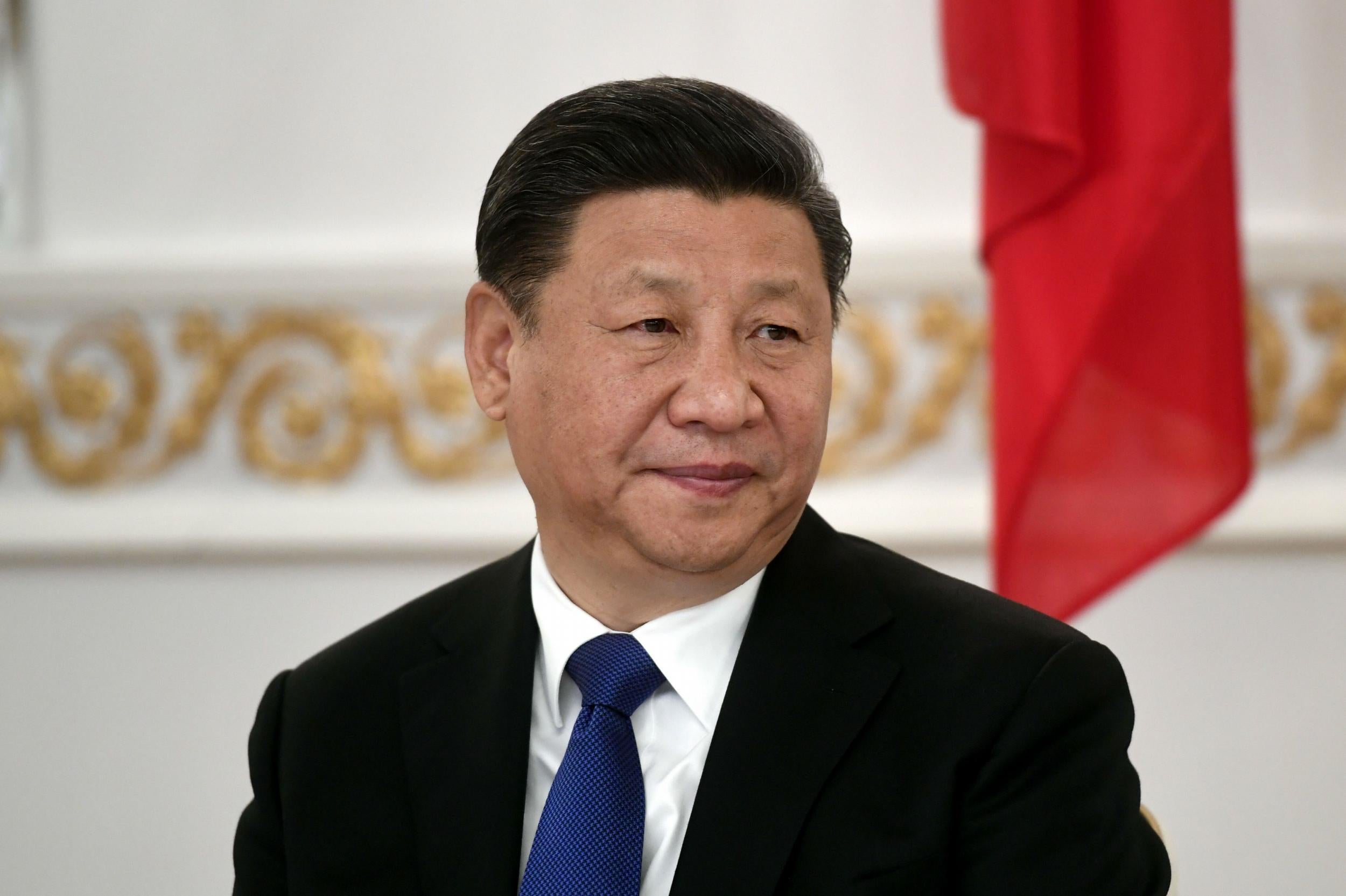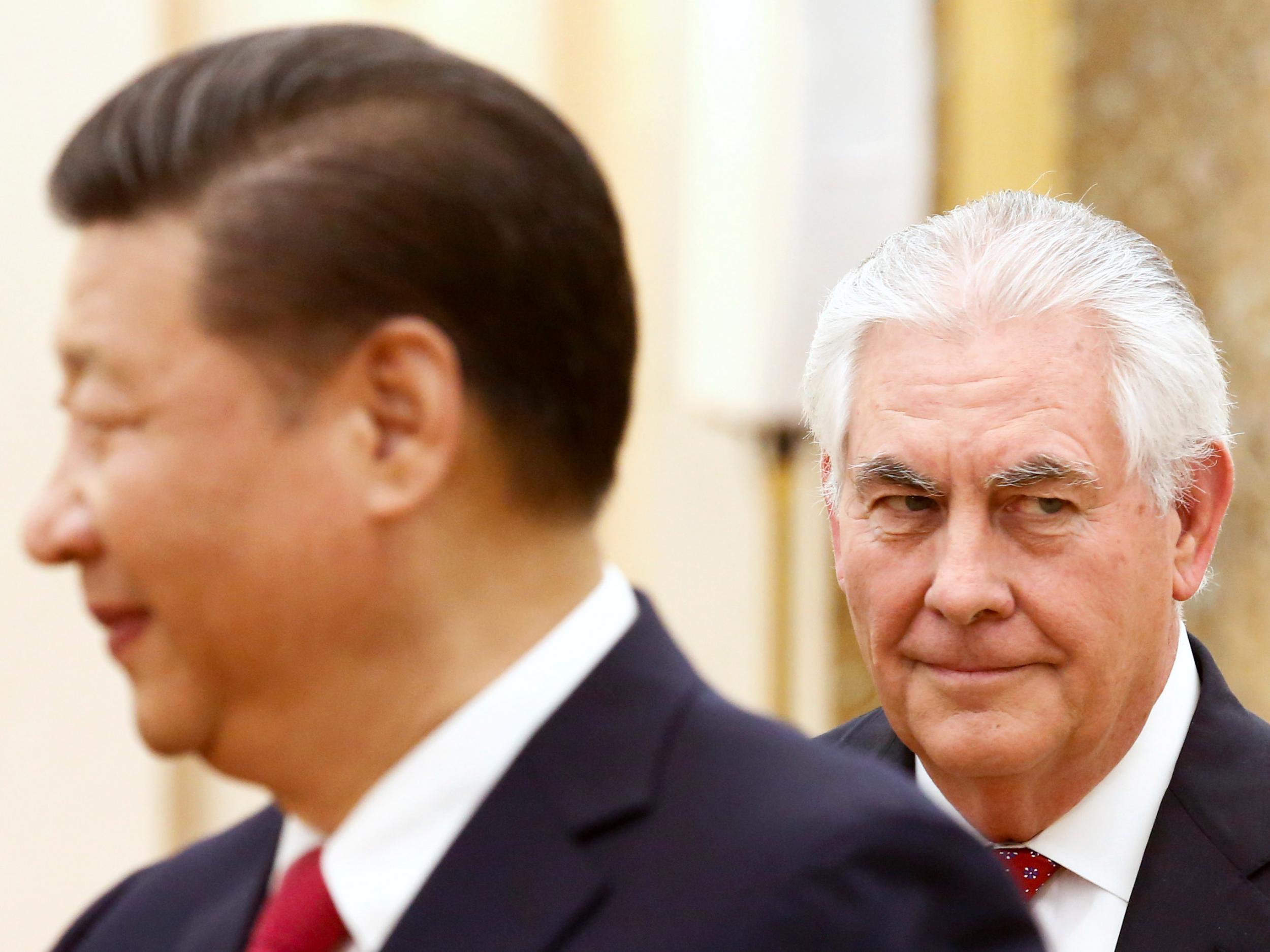Donald Trump will find China's Xi Jinping unmoved by the usual golf-and-cocktails Mar-a-Lago treatment
It would have been much better if Trump had waited longer before reading China the riot act on doing something about North Korea or even agreeing to meet Jinping

Your support helps us to tell the story
From reproductive rights to climate change to Big Tech, The Independent is on the ground when the story is developing. Whether it's investigating the financials of Elon Musk's pro-Trump PAC or producing our latest documentary, 'The A Word', which shines a light on the American women fighting for reproductive rights, we know how important it is to parse out the facts from the messaging.
At such a critical moment in US history, we need reporters on the ground. Your donation allows us to keep sending journalists to speak to both sides of the story.
The Independent is trusted by Americans across the entire political spectrum. And unlike many other quality news outlets, we choose not to lock Americans out of our reporting and analysis with paywalls. We believe quality journalism should be available to everyone, paid for by those who can afford it.
Your support makes all the difference.You almost wish President Xi Jinping had lingered in Helsinki rather than continuing on his way to southern Florida for his two-day sojourn at Mar-a-Lago, the stucco-and-terracotta confection that nowadays, on account of its owner, has been dubbed the Southern White House.
That would be Donald Trump, who seems entirely unprepared for a first face-to-face with his Chinese counterpart. He doesn’t have his ambassador in Beijing yet. His trade negotiator has not been confirmed. Nor are the State Department experts who would normally formulate Asia policy and brief the president on it yet in place. It is possible we are underestimating the homework he has done ahead of it, but on balance that seems unlikely. True, Rex Tillerson, the Secretary of State, went on a ground-laying trip to Beijing last month, but was assailed for issuing a statement afterwards that read as if it had been written for him by his hosts.
There are other reasons why we might wish these two men were not meeting at this particular juncture to tackle such a wide sweep of consequential matters. They include the growing nuclear threat posed by North Korea, Beijing’s militarization of island bases in the South China Sea and the whole panoply of Sino-US trade tensions. Also potentially on the table, though seemingly down the list of priorities for Trump: the diverging positions of the two countries on climate change and China's woeful record on human rights.
For one, you might want Trump to go into this thing in slightly more vigorous political fettle. (Though confirmation of Neil Gorsuch as the newest Supreme Court justice may happen while he is with Xi.) As president, meanwhile, he has done plenty already to encourage China to believe it already has the better of him, including his summary scrapping of TPP, the 12-nation trade accord championed by his predecessor as a means of averting Chinese economic dominance of the Asia-Pacific region.
When he took a post-inauguration call from the President of Taiwan, apparently signalling an end to US acceptance of the ‘one-China’ policy that has endured for decades, an angry Xi made clear he would not talk to Trump at all if he didn’t reverse course. The neophyte of Washington was forced to oblige and the two leaders finally had their first phone conversation on 9 February. ‘One-China’ was alright by the new American leader, after all.
It’s unlikely, meanwhile, that Trump’s “China-is-raping-us” rhetoric on the campaign trail will have impressed or endeared him to the communist leadership. Among his favourite tropes: that it deliberately depresses its currency to skew trade. It doesn’t, or hasn’t for some time. Only Mexico came in for more poisonous bluster from the lips of the then candidate than China.
Bluster, not diplomatic calibration, seems to have informed Trump’s comments in advance of the summit. In a Tweet he suggested the talks would be “very difficult” and “American companies must be prepared to look at other alternatives,” implying trade war with China might follow. Later, he said he and Xi would discuss the ”theft of American prosperity“ by foreign countries.
He also tried some pre-emptive bullying of China and its record of reluctance when it comes to getting Pyongyang to freeze its missile programme. Talking to the Financial Times, he said if Beijing doesn’t do more, the US would take steps of its own, without saying what. “If China is not going to solve North Korea, we will,” he declared boldly. “That is all I am telling you.”
True, the Pyongyang conundrum is urgent. Kim Jong-un, the supreme leader, could have missiles able to reach the western US before a first Trump term is up, maybe with biological or nuclear capabilities. Japan and South Korea, key US allies, are within range now. But what makes Trump think he has the key to resolving this dangerous riddle now, when it has flummoxed so many US presidents before him? His weakness at home makes you fear he could do something drastic. A unilateral strike seems unthinkable. But even that does not appear to have been ruled out. "The clock has now run out and all options are on the table," a White House official told reporters ahead of the the summit. Hours later, North Korea fired another missile into the sea from its east coast.

Even so, there is another reason why this summit and the topic of North Korea is coming at the wrong moment. Any sharp turn on policy on Pyongyang surely requires consultation with South Korea, which has more to lose or gain from the fall-out than any country. But the recent impeachment of President Park Geun-hye and the presidential election campaign now underway means there is a political vacuum for now in the southern half of the peninsula.
Then there Trump’s need for instant gratification. Xi will come with a couple of tangerines for Trump, tasty enough at least for him to declare afterwards that they have forged a “beautiful” and “tremendous” friendship. He may pocket them, however, with no heed to a longer term strategy for a bilateral relationship that is about as complex and multi-layered as any can be or indeed for southeast Asia as a whole.
Any goodies on trade from Xi or even promises on taming North Korea - hollow or otherwise - might easily lead Trump to let other key issues slide right by him, like China’s human rights record and its continuing construction of military outcrops in seas it doesn’t own. That would further alienate allies like Australia, Singapore, Vietnam and the Philippines who will wonder why they should stick with America versus China if they see it foregoing the values that are supposed to bind them like preserving open societies and rule by democratic government.
This is the upside that China will see in dealing with an unfocused and unprepared new American leader. “Without a broader Asian strategy, and a holistic approach to China, Trump will find himself reacting to changing circumstances from an ever-weaker position in the region—while Beijing reaps the rewards,” Charles Edel, an associate professor of strategy and policy at the US Naval War College, writes on the Politico news site this week.
Trump may try to soften up Xi, who is travelling with his wife, with the whole Mar-a-Lago experience, like he did with Japan’s Shinzo Abe in February. Cocktails on the poolside patio and - of course - a few rounds of golf. Nothing binds men like golf, apparently. Except not this time. Xi doesn’t play. In fact he has excoriated it, as a sport of the elite, and excessive drinking also. So that’s not going to help much with this most important of summits either.
Join our commenting forum
Join thought-provoking conversations, follow other Independent readers and see their replies
Comments